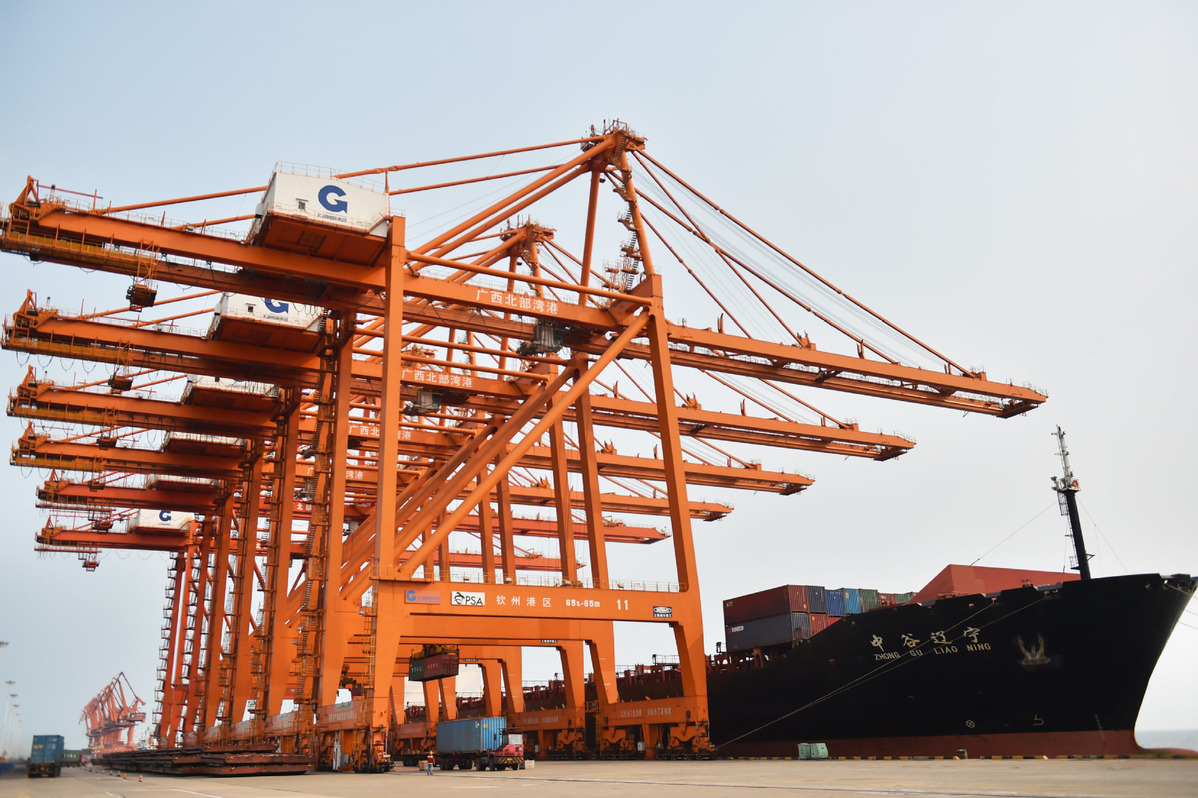China's key role in trade unshakable: China Daily editorial


China's latest trade figures show that being one of the first major economies to generally control the COVID-19 pandemic has enabled it to play its dual roles as both a global manufacturing base and world-class market, providing a boost to the collective global post-pandemic recovery.
According to data released by the General Administration of Customs on Monday, China's foreign trade surged 26.9 percent year-on-year in May, and the country's foreign trade over the first five months of this year hit 14.76 trillion yuan ($2.31 trillion), up 28.2 percent compared with the same period of 2020, and an increase of 21.6 percent from that of 2019.
Notably, despite the attempts the US administration has made to try and decouple its economy from China's, and urge other economies to follow suit, China's trade with its four major trade partners — the Association of Southeast Asian Nations, the European Union, the United States and Japan — over the first five months of this year has increased 29.2 percent, 28.7 percent, 41. 3 percent and 14.9 percent year-on-year respectively.
Were it not for the US trade barriers, in the form of tariffs, technology sanctions and investment bans, which affect not only Chinese enterprises but also those of the US and other developed economies, China's trade with the EU, the US and Japan would probably have been even higher, showing that decoupling is unfeasible.
Despite this, it must be acknowledged that China's foreign trade faces headwinds, not only from the COVID-19 pandemic, which is still raging in some countries, but also from the limitless quantitative easing of the US, which is pushing up the prices of staples and raw materials, and its intensifying efforts to contain China, as well as the yuan's appreciation.
These have taken their toll on China's exports, which dropped 0.4 percent in May compared with April, with small and medium-sized enterprises facing mounting pressures. If these headwinds persist, China's exports will face increasing downward pressure, and the performance of its imports will depend on the extent to which it can promote domestic demand.
Policymakers should strengthen their support for small and medium-sized enterprises, and guard against the mounting inflation pressure to prevent the country's pursuit of high-quality development from being derailed by crosswinds and headwinds.
Nonetheless, the data show that China's position in the global industrial and supply chains remains unshakable. It is still a reliable source of profits for multinational corporations. According to the Business Confidence Survey 2021 published by the European Union Chamber of Commerce on Tuesday, 68 percent of the respondent EU enterprises operating in China are bullish about their future growth.
































